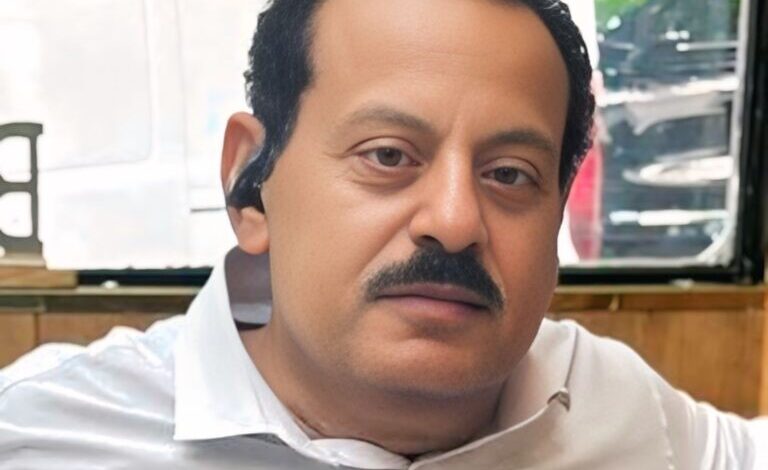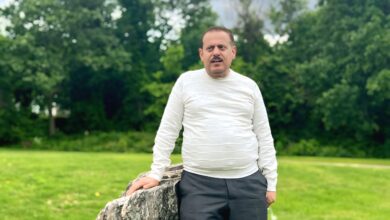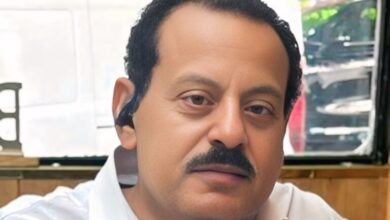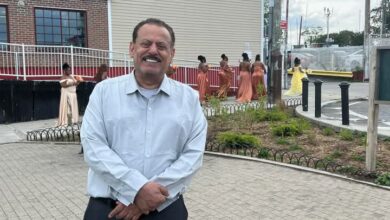The Engagement

Yemeni mp
Ahmed Saif Hashed
The girl’s mother asked for some time to inquire about me. For me, that meant only more waiting, more sleepless nights, and no sense of how long it might last. I could hardly endure further delays without an answer, or an answer that took its own weary time to arrive. The anxiety of expectation wore me down, draining my already tired soul, one still searching for its twin in the orbits of coincidence. What remained of me could no longer withstand the heavy grind and endless cycle of waiting.
I could not bear another disappointment, for my past was already overflowing with them. My shoulders bent under the weight of defeats, and my weary strength could no longer resist another loss, or even something less than that. Life no longer held enough time for more bitter harvests or repeated failures in a love that bore nothing but thorns and gall. I felt as though I were living in borrowed time, holding on to what seemed a final chance to close the wound of a bleeding soul.
After much hesitation and waiting, fortune finally favored me. The girl’s family did not need more than a few days to learn what they wished to know, since I had once lived with my uncle Farid, who resided just down a nearby street, and my other uncle, Harbi, whose home was not far away either. Added to this were the many acquaintances we shared, surrounding both families, which made the process easy and swift.
Meanwhile, I too was searching, seeking certainty and reassurance about the girl who had captured my heart after so much pursuit and exhaustion, and whom I wished to make my companion for life. Thankfully, all the answers came as blessings, favoring us both.
The girl’s family wished to inspect the marital home, to reassure themselves of its adequacy. The house was a simple, humble ground-level dwelling, so modest it perfectly embodied the saying, “make do with what you have.” Its shape resembled an alleyway, or a long passage cut into sections, one room leading into another, with a light wooden ceiling topped by corrugated zinc sheets. Beyond the two rooms lay an open courtyard, uncovered, followed by a kitchen and a bathroom. At the time, I shared this small house with my aunt Saeeda, the mother of my brother Ali, and with my brother Mansour’s children, along with little Nada.
The outcome of that inspection, as I sensed it, was a passing grade at best. It reminded me of an exam I once sat for in English at university, where I scored twenty-six out of fifty. It was called a “success,” yet it was a success gained only by chance and sheer luck. Still, beyond the house, another matter weighed heavily on my mind, something I had begun to dread.
The truth was that I had not been the first to seek her hand. Others had preceded me. Some had inquired but never reached the stage of engagement. Others had become engaged, only for it to end shortly after. One had even reached the contract stage, but never made it to the wedding itself. None of these attempts lasted more than a few months.
The girl would refuse, and her mother would comply with her refusal. But when the pattern repeated, the mother’s strong will would intervene, compelling her daughter to accept. The girl’s resistance, and the way she treated those imposed upon her, inevitably led to failure. I had learned all this beforehand from my confidante, Umm Sharif.
The girl’s mother possessed a strong and imposing character, yet one not devoid of kindness. She held firm authority over every member of her household, including her gentle husband, who, as I learned, had passed away years before I came to know them. During the period of our engagement and contract leading up to the wedding, I too nearly became one of those under her sway. Hers was the final word in the household, even when it seemed to echo sympathy or deference to her daughter’s wishes. It always came after her own correction and review.
The mother imposed her will on her daughter in matters of engagement or marriage contracts, while the girl would rebel, sabotaging and destabilizing the relationship until it collapsed. She was beaten, forced to accept, then rebelled again, undoing what had been done and ruining the results of coercion. Eventually, the mother would reverse her decision, a retreat that was, like everything else, in her hands.
I was the only suitor who received from the outset the girl’s own consent and desire for me to be her partner for life, out of her full will and choice. Perhaps this was what set me apart from those before me. Perhaps I appeared to her as a dream rescuer, a knight who might deliver her from repeated failures and coercion. To me, she was my greatest dream, my distant horizon, the missing half of my being for which I had long searched in vain.
It was her younger sister who told me:
“You’re the first person she’s accepted without any pressure. She was overjoyed at your arrival, excited about the engagement and the marriage. She was practically flying with happiness. I was surprised at her delight with you, as though she had known you before. I was surprised, because to me you seemed like a country man, while she used to imagine her dream man with a fashionable haircut and the latest clothes.”
Each of us had lived our own separate journey, suffered our own failures and long searches, while fate, silently and unseen, had been weaving its plan for us to be together. Chance brought us face to face, and destiny decided that we should unite for the rest of our lives.
I formally proposed to her with a very modest celebration. Only a few of her family attended, along with Umm Sharif and my cousin Abdu Farid. The entire celebration amounted to little more than sipping orange Sunkist, sitting side by side, taking photographs, and exchanging engagement rings. All of this took place in perhaps no more than an hour. The time passed like a flash, like the gasp of a lover at the peak of longing. I grieved for a moment that vanished so quickly, a moment I had waited for as though it were a lifetime. It passed swiftly, without pause, before I could drink in the sight of her, on a day that should have been ours for joy and song.
Yet the simplicity of the celebration delighted me. Sitting beside her, I felt my very being. A tremor coursed through my fingers as I slipped the ring onto her hand. I saw life smile and bless us after such a long wait. Still, the brevity of the hour stole from me the fullness of the joy, the confession of happiness I had so patiently endured for.
After leaving her house, restless questions flooded my mind, pressing for answers. Would I succeed in sailing to the very end? Would I reach the shore of safety? Or would I be one of the defeated, passing through like so many before me? Would I at last cross to the goal I had spent my life seeking? Or would I become yet another disappointment for us both, one more link in a chain of failures that brought no change, no addition to the life we longed for? Would I be the victorious knight, or one of the broken men retreating with the trailing garments of defeat? Could I cross to the end of the road, or would my strength fail before I arrived?
At the height of those questions, my resolve surged. I told myself: I will cling to this destiny with my teeth. I will not let it slip away. I will not allow it to escape from my hands. I will not let heedlessness snatch it from me, leaving me to say, it slipped away in a stray moment of time.
I will fight for it, hold it with every limb and with all my strength. I will defend it with courage. I will hold onto it with my hands, my teeth, my whole being. Let my soul depart before my dream does. For its sake, I am ready, if need be, to fight the whole world with whatever life remains to me. There is no space, no option for surrender, not under any force, any excuse, any name.
The first song I gave her was Samira Saeed’s ”I Will Never Give You Up, No Matter What” a song that expressed some of the love and determination flooding my heart. I quoted from it:
“You’ve given my life, in your love, a taste and color.
I’ll never give you up, no matter what.
We’re for each other; we’ll always remain so,
All our lives we’ll stay together,
No matter what, no matter what.
I loved you when I found you before me, a faraway dream,
Hard for my eyes to reach,
Then, little by little, it came into my hands.”
Her eldest brother, Khaled, I would often see passing by, grim and unsmiling. I cannot recall him ever greeting me during that period. He was stern by nature, seemingly rigid in opinion. His father had named him Khaled after Khaled Gamal Abdulnasser.
I was pleased to know that my late uncle had admired Gamal Abdulnasser. My uncle had come from Kahlan Affar in Hajjah to Aden, a city of love, diversity, coexistence, and welcome, while the girl’s mother came from Al-Waḥṭ, between Lahj and Aden. I felt as though I were repeating my uncle’s experience in love, love that crosses the impossible.
Yet I sensed Khaled’s disapproval, even his strong opposition to me. This feeling swept over me again and again. I did not know why. Perhaps he resented his sister’s repeated failed engagements. Perhaps it was because his friend’s proposal to her had ended in annulment. Or perhaps it was some other reason unknown to me.
What I did know for certain was that he could not stand me. There was no chemistry between us, no warmth of any kind. Because of this, I felt the unknown still lurked ahead, waiting. I sensed the road before me remained far from smooth, far from what I hoped.
And yet, I loved the name Khaled. I loved the father who had named him, who had loved Gamal Abdulnasser, the leader who dreamed of a great unity, who sought to gather a diverse and sprawling nation from its Gulf to its Ocean. It is enough that he dreamed it and tried to begin it. Today, such a dream has become the stuff of impossibility.
* * *






